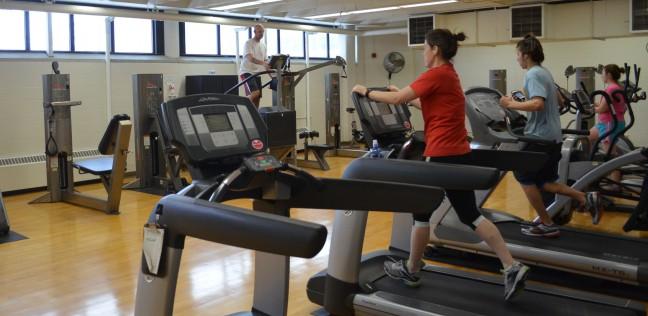A common excuse for not working out as a student living in Southeast is poor workout options. While Lakeshore students have the Nat, Southeast students only have the one room gym on the first floor of Ogg. It’s often crowded and the majority of machines tend to be in use. The high occupancy of students in the Ogg gym means most machines aren’t able to be cleaned between uses, which leaves students vulnerable to illnesses.
While there are gym options outside of the university, a Kamps membership of $175 per month doesn’t fit into the majority of college students’ budgets.
In the beginning of 2020 a solution for this problem will finally be available — the Nicholas Recreation Center. The new recreation center is named in honor of the late Albert Nicholas, his wife Nancy, and the Nicholas family, who have donated millions of dollars to the University of Wisconsin over the past few decades.
The new facility will boast five floors of space for activities, eight full size basketball courts, five multi-purpose studios, two racquetball courts, a training sprint ramp, a 50-meter pool with a diving well, all gender and single use bathrooms and showers, and more. There will be a room dedicated to cycling and multiple places inside the facility that have beautiful views of the State Capitol and Lake Mendota.
But why does this really matter?
Kelli Koltyn, a University of Wisconsin professor of Kinesiology, says there is a direct relationship between health and exercise. In fact, 85% of primary care physicians prescribe exercise as a treatment option for people with depression and 60% of primary care physicians prescribe exercise for people with anxiety, Koltyn said.
Many college students experience anxiety and/or depression due to the stress of schoolwork and college debt. Koltyn said 70% of teens say anxiety and depression are a major problem in their community and 61% of teens feel pressured to get good grades. That pressure tends to increase in college due to the importance of maintaining a good GPA.
While severe depression requires professional treatment, people with higher activity levels report fewer symptoms of depression, Koltyn said. In regards to anxiety, even one session of exercise can reduce the state of anxiety.
College students are also known to get less sleep than other individuals. Exercise can help with that, too. Koltyn said moderate sessions of exercise have been associated with increased energy. For people with fatigue-related medical issues, feelings of energy can increase with moderate-intensity exercise.
Ronnie Carda, faculty associate at UW, explained the main reason people don’t workout is because of time constraints. The location of the Nicholas Recreation Center alleviate this issue because it is so central to the Southeast dorms and other student-heavy locations.
The Nicholas Recreation Center will include a personal training suite for assessments and private consultations. This is beneficial for students because some students may not know how to tailor their workout to maximize their health gains.
For example, Carda emphasized the use of the 10% rule as a guide for increasing volume of a workout — this rule simply suggests increasing workout intensity by no more than 10% each week, and intermixing how you increase that intensity.
Once the Nicholas Recreation Center opens, hopefully students will take advantage of the new facility and understand the benefits that working out will have on their mental health.
Lauren Hando (hando@wisc.edu) is intending to major in journalism.


